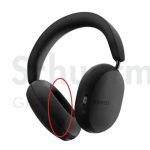As the game of cat and mouse between Elon Musk and Twitter continues, the Court of Chancery – which is hearing the legal dispute between Twitter and the CEO of Tesla over the latter’s impulsive decision to walk away from the agreement to acquire the social media platform – just awarded a partial victory to both parties.
Around two weeks back, a whistleblower complaint by Twitter’s former head of security, Peiter “Mudge” Zatko, was published by Washington Post. The complaint alleged, among other things, chronic mismanagement at Twitter, as evidenced by security lapses, lack of proper internal controls regarding access to the private information of Twitter users, technical shortcomings, and non-compliance with an already-signed privacy agreement with the Federal Trade Commission (FTC). Crucially, Zatko alleged that Twitter’s executives have neither the resources nor the willingness to investigate the true quantum of bots that populate the social media platform. Bear in mind that this issue constitutes the crux of the ongoing dispute between Elon Musk and Twitter, with the former repeatedly questioning the authenticity of the social media giant’s claims that the proportion of bots or fake accounts that populate its platform constitute less than 5 percent of its monetizable Daily Active Users (mDAUs) metric. According to Zatko, he was fired back in January after he repeatedly raised concerns on these counts.
This whistleblower complaint came as a godsend for Elon Musk, who then quickly issued another deal termination letter to Twitter, which incorporated the choicest of allegations contained in Zatko’s complaint. To wit, the letter noted:
“On August 23, 2022, the Washington Post published a whistleblower report to Congress, the SEC, FTC, and DOJ filed by Peiter ‘Mudge’ Zatko, Twitter’s former chief security officer, on July 6, 2022 (the ‘Zatko Complaint’),” the letter said. “The Zatko Complaint alleges far-reaching misconduct at Twitter – all of which was disclosed to Twitter’s directors and senior executives, including Parag Agrawal – that is likely to have severe consequences for Twitter’s business.”
The letter’s punchline read:
“Although the Reporting Person believes the August 29 Termination Letter is not legally necessary to terminate the Merger Agreement because he has already validly terminated it pursuant to the July 8 Termination Letter, the Reporting Person delivered the August 29 Termination Letter in the event that the July 8 Termination Letter is determined to be invalid for any reason.”
Concurrently, Musk’s lawyers applied to delay the trial commencement date to November from the already-communicated October timeframe in order to secure additional time to study the whistleblower complaint.
This brings us to the crux of the matter. The Court of Chancery’s Judge Kathaleen St. Jude McCormick has now issued a decision on Elon Musk’s motion to delay the trial. To wit, McCormick has ruled that the “Defendants’ motion to amend is granted,” paving the way for Musk’s lawyers to incorporate the whistleblower complaint in their counterclaim. However, in a setback to Musk, Judge McCormick has denied Musk’s request to delay the trial:
“Defendants’ motion to extend the case schedule is denied.”
You can peruse Judge McCormick’s ruling here. Twitter shares are currently up over 3 percent, indicating that the market has interpreted this development, on balance, to be in favor of Twitter.
The post Partial Victory for Elon Musk: The Judge Allows the CEO of Tesla To Use the Twitter Executive’s Whistleblower Material but Denies Request for Trial Delay by Rohail Saleem appeared first on Wccftech.







